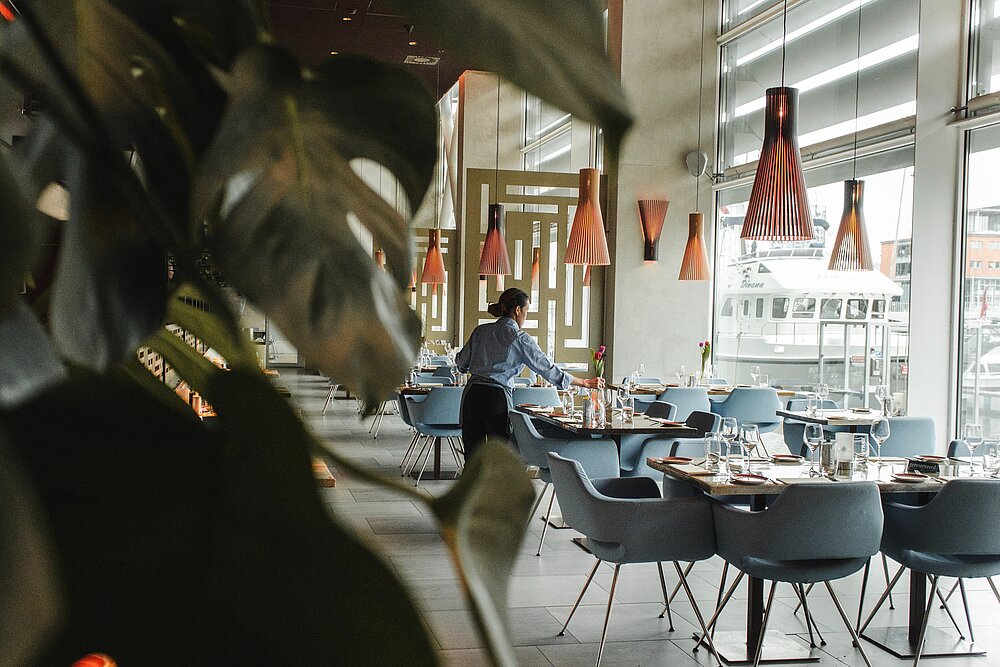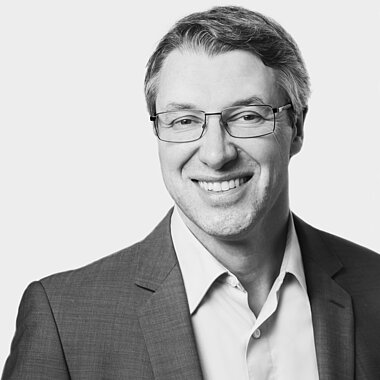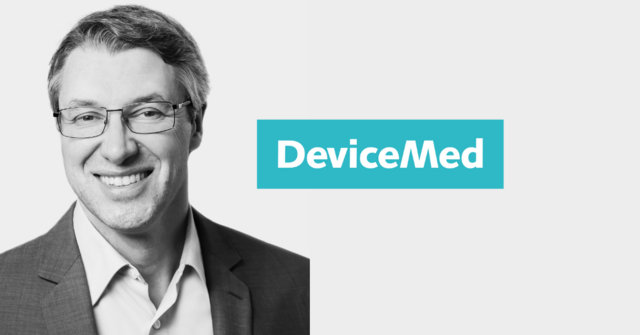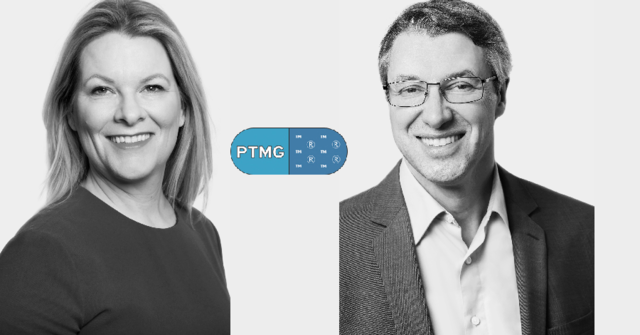Find out today what the legal world will be talking about tomorrow.
19.09.2023
The Return of a Compliance Classic: Hospitality for Healthcare Professionals - What is currently to be observed?

During the Covid 19 pandemic, a healthcare compliance "classic" has largely faded into the background: The permissibility of hospitality for healthcare professionals by representatives of the pharmaceutical and medical device industries. Visits by sales representatives have been replaced by phone calls and video calls. Conferences, training courses and events took place virtually at best. And cooperation with physicians as consultants, e.g., in product development, also took place digitally to the greatest possible extent.
After the end of the pandemic, however, face-to-face meetings are coming back to life. And so it is not surprising that the question now also arises again as to whether and to what extent physicians, dentists, pharmacists, nurses, practice staff and other healthcare professionals ("HCPs" for short) may actually be invited to lunch or dinner. Some changes have happened recently, particularly with regard to value limits - including new versions for important codes.
1. Healthcare Compliance Regulations limit Hospitality Opportunities
In other industries, occasional invitations among business partners are quite common. However, if HCPs are to be invited, specific healthcare compliance rules must be observed.
Section 7of the Healthcare Advertising Act (short: “HWG”) prohibits benefits and other promotional gifts for the purpose of product-related sales promotion of drugs and medical devices as well as certain treatments and procedures. If physicians who are licensed to practice for public health insurance are invited to a meal in connection with the provision of therapeutic products and aids, this may constitute a kick-back in violation of Section 128 para 2 and para 5b of the Fifth Book of the Social Security Act (short: “SGB V”). The professional law for physicians also prohibits doctors from accepting gifts and other benefits if this could lead to the impression that the independence of medical decisions could be influenced (see specifically Section 32 of the Model Professional Regulation for Physicians (short: “MBO-Ä”) and the corresponding provisions in the professional regulations for physicians of the Federal States in Germany). Hospitality can be "benefits" within the meaning of this provision. Finally, in rare cases there may even be risks under criminal law if the hospitality is offered, promised or granted in return for a physician giving unfair competitive advantage to the inviting company when prescribing medicines, treatments or medical devices, or when purchasing medicines, treatments or medical devices to be used in the physician’s practice (Sections 299a and 299b of the German Criminal Code, short “StGB”).
For companies that are members of code-issuing associations, there are sometimes significantly stricter regulations from codes of conduct to which the companies have subjected themselves by virtue of their membership. These include, for example, the "Code of Conduct for the Cooperation of the Pharmaceutical Industry with Physicians, Pharmacists and Other Members of Medical Professions" issued by the Association for Voluntary Self-Monitoring of the Pharmaceutical Industry (“Verein Freiwillige Selbstkontrolle für die Arzneimittelindustrie e.V.”, short “FSA”), the Code of Conduct of the Members of the Association for Pharmaceuticals and Cooperation in Healthcare (“Arzneimittel und Kooperation im Gesundheitswesen e. V.”, short “AKG”), the Code of Ethical Business Practice of MedTech Europe, or the Code of Medical Devices of the Federal Association for Medical Technology (“BVMed - Bundesverband Medizintechnologie e.V.”, short “BVMed”). BVMed's Code was revised in May 2023; the changes are discussed in more detail under 3 below.
2. Which Invitations from Healthcare Professionals are prohibited?
a) Meal Invitations for the Purpose of product-related Advertising
It already follows from Section 7 HWG that any hospitality intended to promote sales of, in particular, pharmaceuticals and medical devices is generally prohibited. This also applies to the use of meal invitations as an advertising measure for certain other medical means, procedures, treatments and goods, which are listed in more detail in Section 1 para. 1 nos. 2 and 3, para. 2 HWG. In particular, invitations that serve to initiate business about such products and services are thus generally prohibited - irrespective of the circumstances or of any value limits of the hospitality.
In practice, this means that sales representatives in particular may not invite HCPs to a meal (or offer them other benefits or advertising gifts) if the meal is intended to introduce or present the company's products or services in an advertising manner, or if other product-related advertising within the meaning of Section 1 HWG (e.g. the submission of an offer) is to take place on the occasion of the invitation.
The consequence would be a violation of Section 7 HWG. Violations of Section 7 HWG not only constitute unfair competition and can lead to cease and desist claims by competitors via Section 3a of the Act against Unfair Competition (short “UWG”), but are also administrative offenses that can be punished with fines of up to EUR 50,000 per individual case for both the company and the invited HCPs (Section 15 para. 1 nos. 4 and 4a, para. 3 Hs. 1 HWG).
Furthermore, the independence of the physician is endangered in these cases and thus a violation of professional law by the invited physicians may be another legal consequence (Section 32 MBO-Ä).
The only good news is that, in practice, invitations to meals for promotional purposes are rather unlikely to result in criminal liability under Section 299a, 299b StGB: The invitation would have to be quite luxurious for there to be any real reason to assume that there is a genuine "illegal agreement" to the effect that physicians prefer the inviting company in competition precisely because of the hospitality.
It should be noted that for a violation of Section 7 HWG and Section 32 MBO-Ä, it is not required that the invited physicians were actually influenced. Particularly in the case of Section 7 HWG, the invitation to a meal for product-related advertising purposes is sufficient in itself for an infringement.
b) Meal Invitations as a "Reward" for Product Purchase or Prescription Behavior
Invitations as a "reward" for a certain prescription behavior are also very dangerous, especially in case of physicians licensed to practice for public health insurance. If the physician has previously prescribed the company's remedies or aids and there is a certain connection between the prescription and the hospitality, the invitation is almost always regarded as a prohibited kick-back (Section 128 para. 2 and para. 5b SGB V). In special cases (e.g., in the case of medical supplies to the physician that are paid for by public health insurance), such kick-backs can even lead to criminal liability for reimbursement fraud (Section 263 of the German Criminal Code) if not declared to the public health insurance, because under social security law kick-backs are considered to be discounts received by the physician, which physicians must deduct when filing applications for reimbursement of the costs of medical supplies paid for by the public health insurance.
At the same time, there is also the risk of a violation of Section 7 HWG if the "reward" for past prescribing or purchasing behavior may also be regarded as an incentive to prescribe or purchase products in the future, e.g., in order to benefit from such invitations again. In addition, invitations constituting “rewards” in the above sense regularly violate Section 32 MBO-Ä.
c) Inviting Spouses and Relatives of the Physician
Even though constellations exist in which HCPs may be invited as an exception (see 3 below), this only applies to the HCPs themselves. Family members, employees of the HCP, and other third parties may not be included in invitations even if the invitation of the HCP himself or herself is permitted.
3. What is permitted - and above all: What has changed?
Under applicable compliance rules some invitations of HCPs to meals are permissible:
a) Hospitality on the Occasion of Scientific Events and Training Courses
The most important exception is probably hospitality on the occasion of scientific events and training courses. Insofar as HCPs may be permissibly invited to medical lectures, scientific events or internal company training measures (subject to compliance with the respectively applicable legal regulations), it is also permissible to invite the HCPs to food and drink to a reasonable extent.
This results, for example, explicitly from Section 7 para. 2 HWG, which provides for an exception to the prohibition of benefits under Section 7 para. 1 HWG for “benefits in the context of exclusively profession-related scientific events, provided that these do not exceed a reasonable scope, are of secondary importance in particular with regard to the scientific purpose of the event and do not extend to persons other than those working in the healthcare sector”. However, in case of genuine scientific events primarily for the purpose of medical knowledge transfer, Section 7 HWG will not be applicable in the first place because such events do not constitute product-related advertising measures in the sense of Section 1 HWG – the prerequisite for the applicability of Section 7 HWG.
Accordingly, all relevant industry codes also clarify that invitations to appropriate working lunches are permissible in the context of permitted scientific events and medical training courses (e.g. Section 22 FSA Code; Section 19 para. 2 p. 2, para. 3 p. 1 AKG Code; Section 12 Code of the BVMed Code; Chapter 1 No. 4 of the Code of Ethical Business Practice of MedTech Europe).
b) Working Lunches in the Context of Cooperations
It is also possible to invite HCPs to a working lunch if the company and the HCP cooperate in a permissible manner, e.g. in the case of a joint research project, a lecturing or consulting activity of the HCP for the company, a jointly conducted clinical study or similar.
Again, of course, the relevant compliance requirements for such collaborations must be met. If these requirements are fulfilled, the HCP can be invited to a meal to a reasonable extent if it is a genuine working lunch. This presupposes that the main purpose is to discuss the cooperation and that the meal is only a secondary matter. In this case, there is also no infringement of Section 7 para 1 HWG, because the content of the discussion does not serve the purpose of product-related sales promotion (cf. Section 1 para. 1 HWG). Violations of medical professional law, § 128 SGB V or the criminal anti-corruption provisions are then also ruled out.
c) Selection of appropriate Locations and Adherence to the applicable Value Limits
If a case exists in which HCPs may be invited to a meal, this is still no license to dine with HCPs at the company's expense as one pleases. Luxury or gourmet restaurants are prohibited, as are event catering or hospitality at attractive tourist or leisure locations. Moreover, the meal must always be a working meal and thus a “necessary incidental matter” - which is not compatible with invitations where the meal is particularly attractive or the location is specifically prominent.
In practice, the question repeatedly arises as to the value limit up to which the invitation can still be considered a "working meal" and at what point the hospitality turns into a luxury that is no longer appropriate. For many years, a value limit of EUR 50 was generally accepted, which was then raised to EUR 60 a few years ago due to (low) inflation. In the last two years, however, inflation in Germany has cumulatively amounted to about 18%, and catering prices have often even risen disproportionately.
As early as September 2022, the FSA had therefore raised the upper limit for hospitality that is still to be considered appropriate and socially adequate from EUR 60 to EUR 75 in its guidelines on the Codes for relations to Healthcare Professionals and Patient Organizations. More recently, BVMed followed suit and, in the course of the introduction of the new Code for Medical Devices 2023, not only outlined more precisely in Section 12 the framework conditions under which hospitality is permissible by way of exception, but also regulated in a new Section 12 para 2 of the Code that the BVMed Healthcare Compliance Committee (HCCC) can publish amounts “for orientation purposes” at which “hospitality of healthcare professionals can be considered socially adequate under ordinary circumstances”. BVMed's HCCC has also raised this orientation value to EUR 75 per invitation and invited HCP.
However, it is important to note here as well: These values are only orientation values. If, for example, a physician is to be invited to a working lunch during a congress in order to discuss a joint study project, and if only high-priced restaurants are accessible in the vicinity of the congress center, a higher amount may still be appropriate for a working lunch in individual cases.
Compliance with the value limits alone does not make the invitation permissible though. If physicians are invited to the Oktoberfest, for example, the invitation amount per HCP may remain below EUR 75; however, such an invitation is nevertheless not permissible, since the leisure character is obviously the primary purpose here – and a genuine working lunch with a project meeting as the main reason at the Oktoberfest is hardly possible, too.
In addition, it is always advisable to document the occasion and content of the hospitality so that the admissibility of the invitation can be proven in case of doubt. Some Codes expressly prescribe this (e.g. Section 22 para 1 sentence 2 of the FSA Code; Section 12 para 3 sentence 1 of the revised version of the BVMed Code for Medical Devices 2023). Particularly in the case of invitees who work in the public sector (e.g. employed or civil servant physicians in hospitals under public ownership), it may also be advisable, in case of doubt, to obtain permission from the employer before issuing the invitation; incidentally, BVMed also recommends this in Section 12, Paragraph 3, Sentence 2 of its new Code.
4. Conclusion: With increasing personal Contacts, pay more Attention to Compliance again!
After the end of the Covid-19 pandemic, it is good to see an increase in personal contacts between representatives of the pharmaceutical and medical device industry on the one hand and healthcare professionals on the other. However, this also brings back special compliance risks, which need to be kept in mind to avoid serious legal consequences. In addition, members of certain associations must observe various changes in the associations’ codes of conduct, e.g. in the new version of the BVMed Code for Medical Devices of May 2023.
Finally, for a better overview, here is a “one pager” table of currently permissible and impermissible hospitality for HCPs.
Authors


